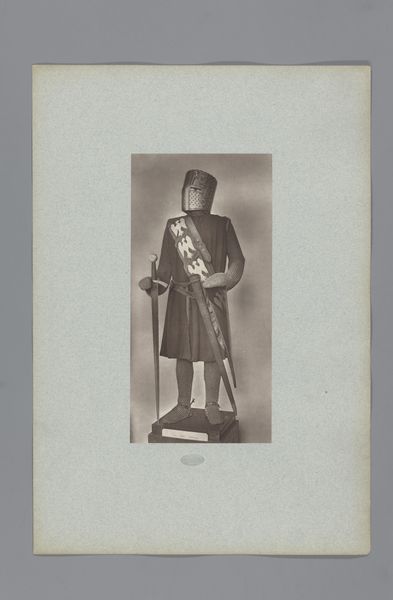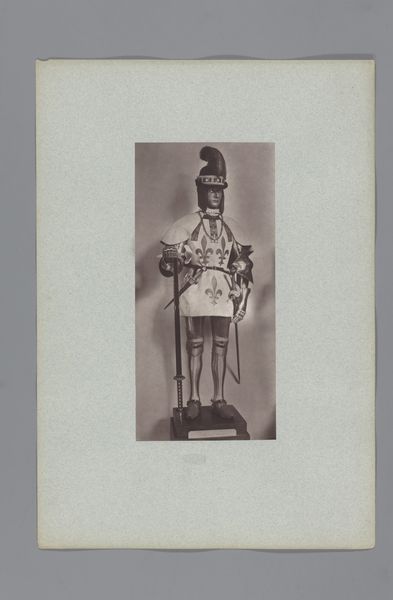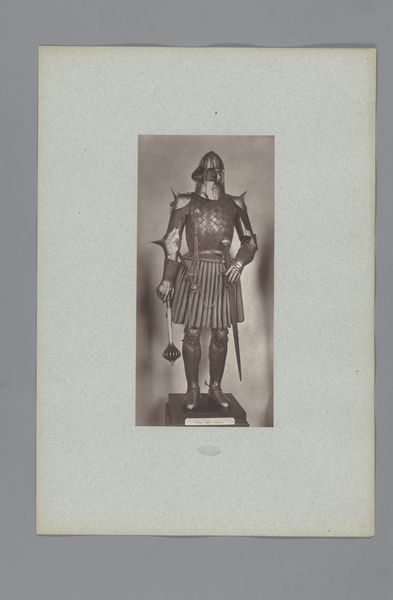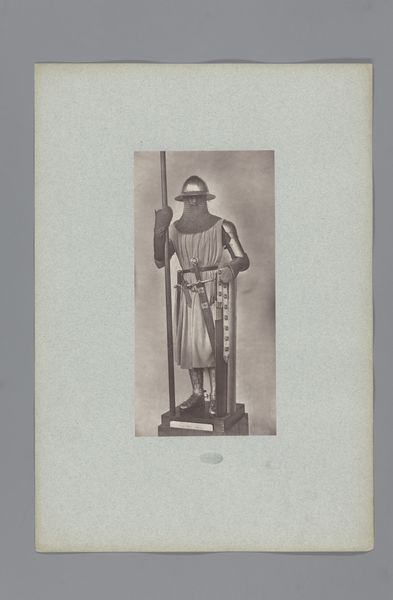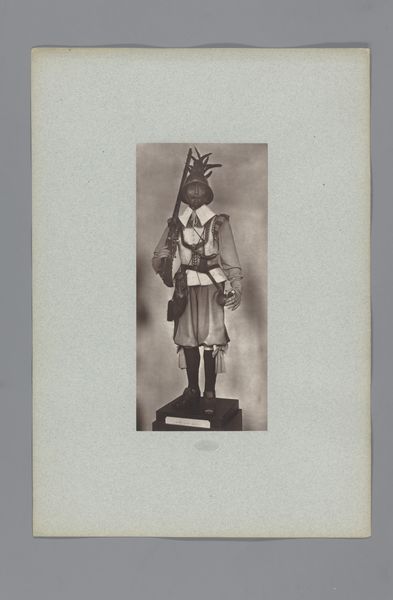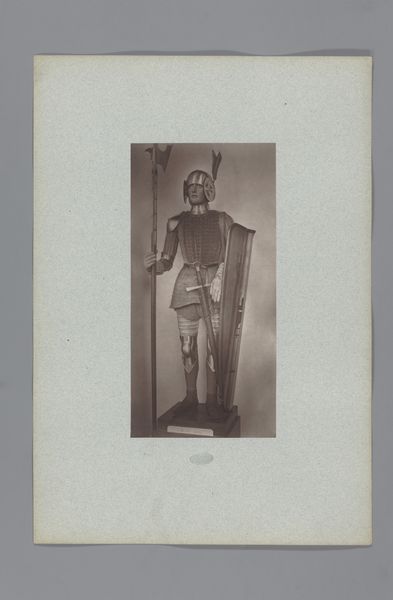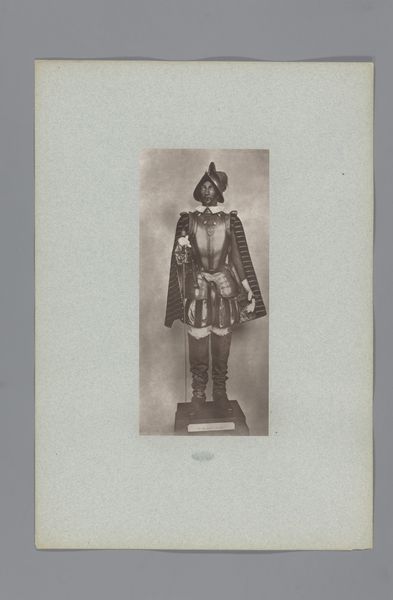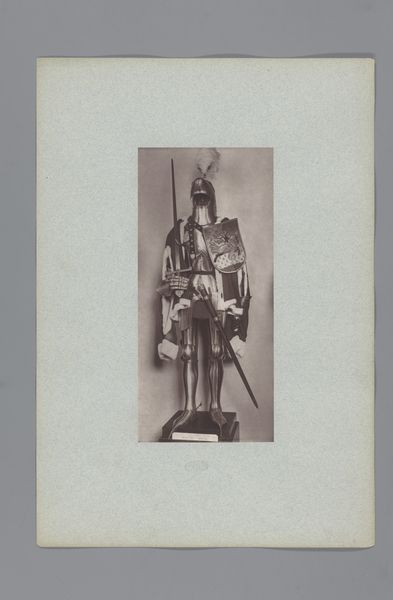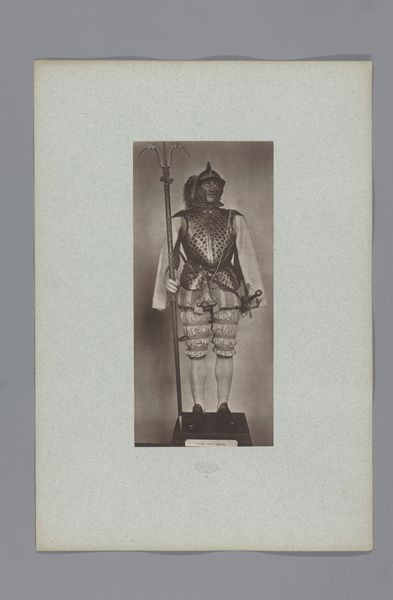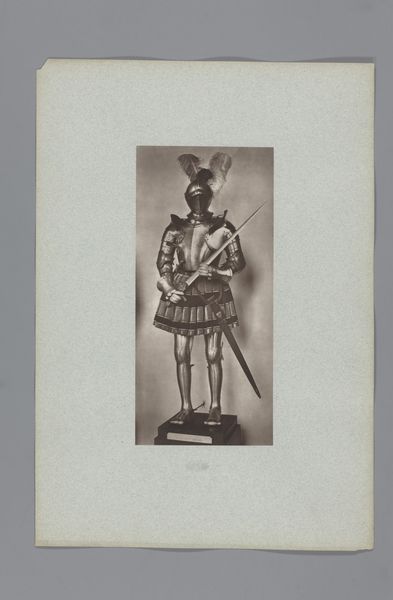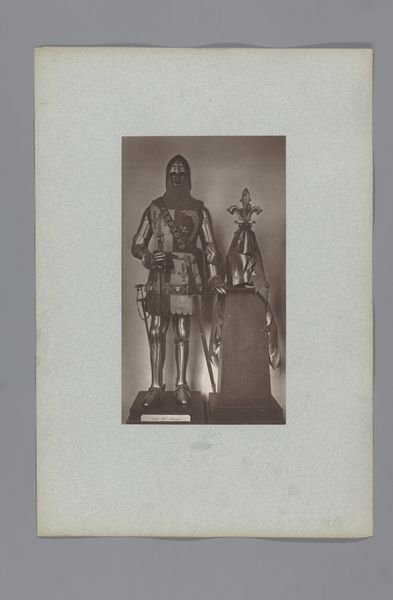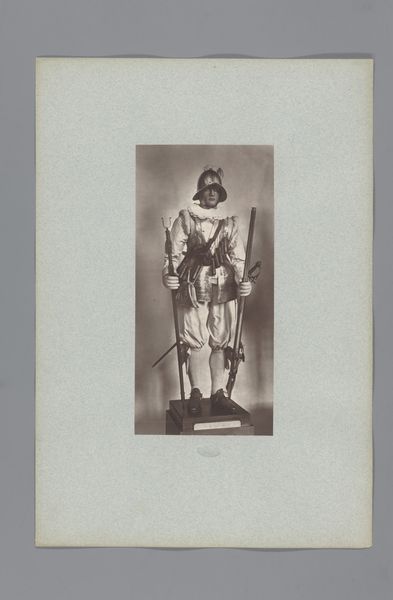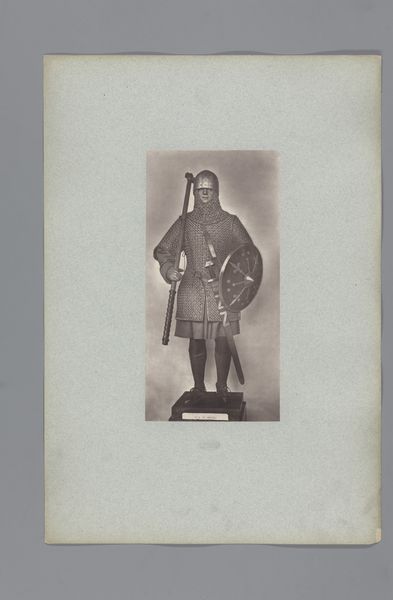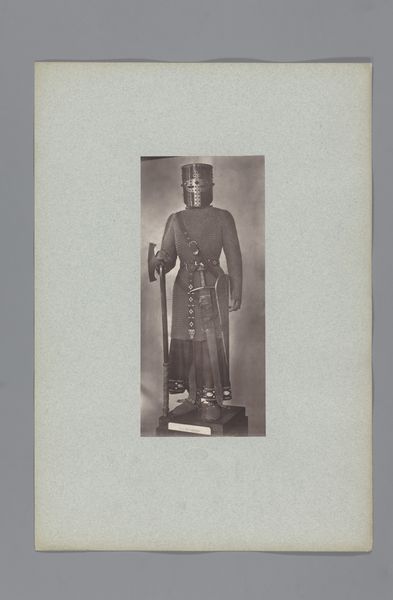
14de-eeuws harnas met zwaard en schild uit het leger van Karel V van Frankrijk, uit de collectie van het Musée d'Artillerie in Parijs before 1882
0:00
0:00
anonymous
Rijksmuseum
print, photography, gelatin-silver-print
#
portrait
#
medieval
# print
#
photography
#
gelatin-silver-print
#
academic-art
Dimensions: height 270 mm, width 129 mm
Copyright: Rijks Museum: Open Domain
This imposing suit of armour, now in the Musée d'Artillerie in Paris, dates back to the 14th century, and was once part of Charles V of France's army. It represents a fascinating intersection of craft, design, and materiality. Constructed from carefully shaped and fitted plates of steel, the armour would have been painstakingly hammered, polished, and assembled by skilled artisans. The weight and form of the metal dictate the suit's overall shape, each piece designed to protect vital areas while allowing for movement. Consider the labour involved: from mining the ore to forging the individual components, each suit of armour represents a significant investment of time and expertise. More than just protection, armour like this also functioned as a symbol of power and status, reflecting the wealth and authority of its wearer. By appreciating the materials, making process, and social context of this armour, we can move beyond seeing it as a mere object and understand it as a testament to the artistry, skill, and social relations of its time.
Comments
No comments
Be the first to comment and join the conversation on the ultimate creative platform.
